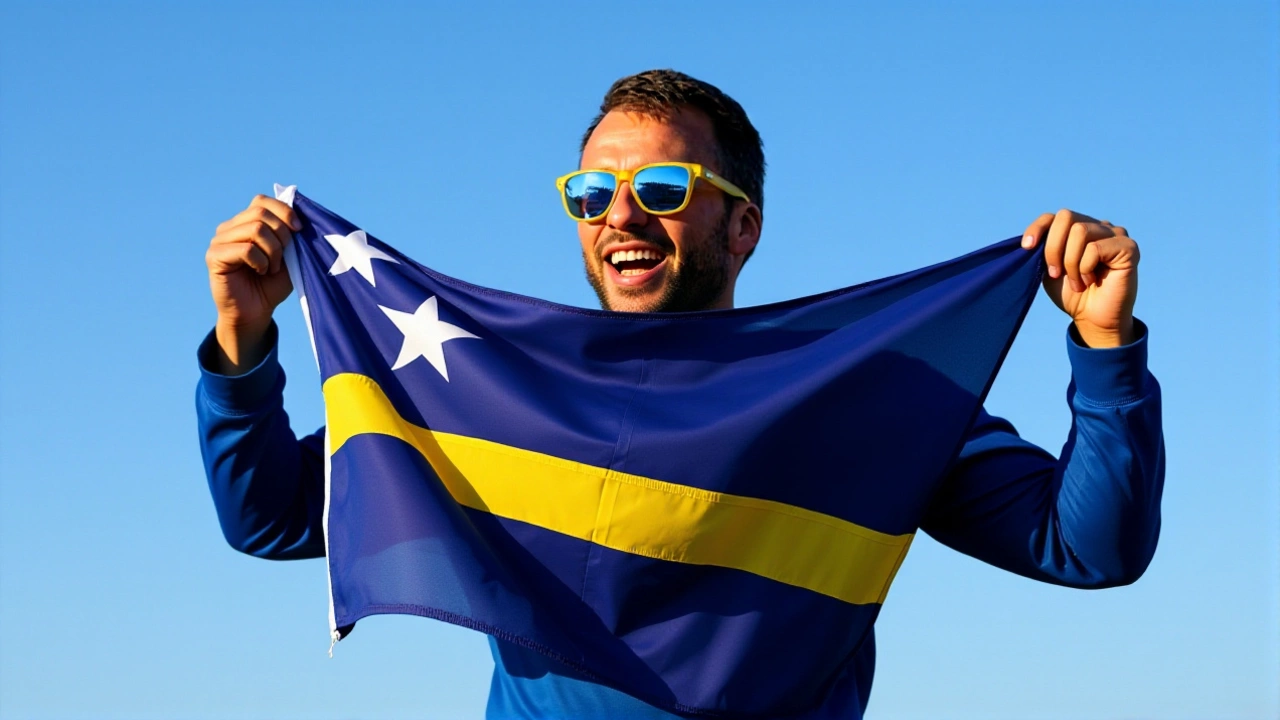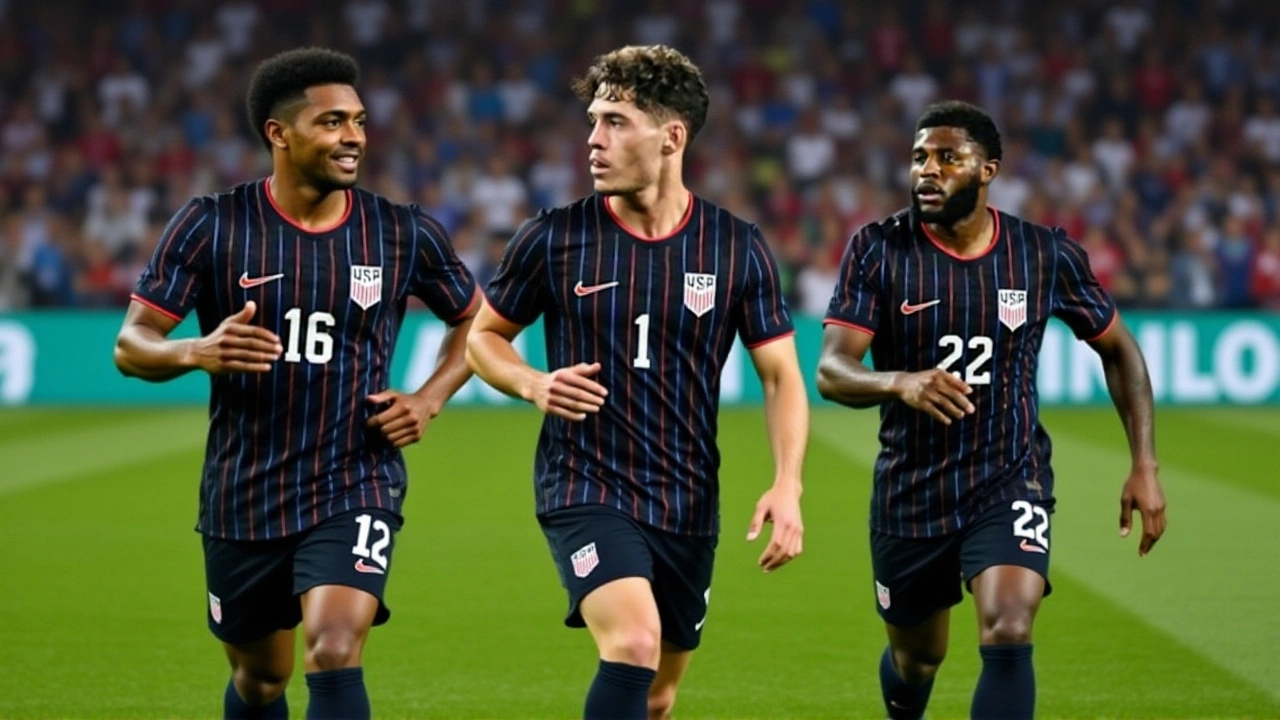Despite its tiny population and passionate fanbase, Curaçao has never qualified for the FIFA World Cup — and claims that it did, or even "shocked the soccer world," are entirely false. As of November 2024, the Caribbean island nation with just 165,173 residents was eliminated from the 2026 World Cup qualifying race, finishing third in its CONCACAF group behind Canada and Guadeloupe. The reality? The smallest country ever to reach the tournament remains Iceland, whose 338,349 people made history in Russia 2018. Curaçao’s dream is still just that — a dream.
How Curaçao’s 2026 Qualifying Campaign Ended
Curaçao’s hopes for a historic breakthrough died on October 17, 2024, at the Stade René Serge Nabajoth in Les Abymes, Guadeloupe. A 1-0 loss to the island neighbors sealed their fate. They finished Group B with just seven points from six matches: three wins, one draw, two losses. Their lone highlight? A dominant 4-0 home win over Belize on June 5, 2024, at the Ergilio Hato Stadium in Willemstad. But against stronger opponents, they struggled. A 2-1 defeat in Toronto and a frustrating 1-1 stalemate in Dominica exposed their inability to close out games under pressure.Head coach Jean-Paul van Gastel, who took over in January 2023, didn’t sugarcoat it after the final whistle. "We gave everything but the quality of Canada and Guadeloupe was superior in decisive moments," he said. "Qualification remains our dream but not our reality yet."
Why Curaçao Keeps Falling Short
The Federashon Futbòl Kuwara (FFK), founded in 1921 and recognized by FIFA in 1958, has been trying for decades. Since Curaçao became a separate entity after the dissolution of the Netherlands Antilles in 2010, they’ve attempted to qualify for every World Cup — 2014, 2018, 2022, and now 2026. Each time, they’ve been stopped in the second round. Their FIFA ranking of 80th as of June 2024 (1,206.68 points) is respectable for a small nation, but not enough to break through in a region dominated by the U.S., Mexico, and Canada.General Secretary Nelson Perdomo admitted the team’s shortcomings in a November 15, 2024, interview with Radio Televisie Kòrsou (RTK). "We fell short in converting scoring opportunities," he said. "The 2026 journey ends here. We know what we need to fix."
Experts point to systemic issues. Dr. Stefan Szymanski, professor of sport management at the University of Michigan, noted in a January 2025 analysis: "Caribbean nations like Curaçao face structural disadvantages in funding and player development compared to CONCACAF powerhouses. Without youth academies, professional pathways, or consistent investment, they’re fighting uphill."

The Smallest Nation Myth — Debunked
The persistent myth that Curaçao is "the smallest nation in World Cup history" is dangerously misleading. It’s a half-truth wrapped in wishful thinking. Yes, Curaçao’s population is less than half of Iceland’s. But qualification requires more than size — it requires results. Iceland’s 2018 run, where they beat England and reached the quarterfinals, remains the benchmark. Trinidad and Tobago (2006) and Northern Ireland (2018) were also larger than Curaçao. No credible outlet — not BBC, not ESPN, not FIFA — has ever reported Curaçao’s qualification. As of November 21, 2025, the record stands clear: zero appearances.
What’s Next for Curaçao?
The next qualifying cycle for the 2030 FIFA World Cup begins in September 2027. Curaçao’s window is narrow. They’ll need to develop a pipeline of talent, invest in coaching, and perhaps leverage their diaspora — many Curaçaoan players are based in the Netherlands, Belgium, and even the U.S. lower leagues. But without structural reform, another early exit is likely.For now, fans in Willemstad are left with memories of near-misses — a last-minute equalizer here, a controversial red card there. The team’s resilience is undeniable. But in football, as in life, heart alone doesn’t get you to the World Cup.
Frequently Asked Questions
Has Curaçao ever won a World Cup qualifier?
Yes — Curaçao has won World Cup qualifiers, but never advanced beyond the second round. In the 2026 cycle, they beat Belize 4-0 and Dominica 1-0, and drew with Guadeloupe 1-1. Their three wins in the 2026 qualifiers are their most in a single campaign, but they failed to win against top-tier opponents like Canada.
Why can’t Curaçao compete with bigger CONCACAF teams?
Curaçao lacks the financial infrastructure of nations like the U.S. or Mexico. They don’t have professional domestic leagues, limited youth academies, and rely heavily on players based abroad. While they have talent — like forward J. van der Hoorn — they struggle to retain top players and build consistent team chemistry over long qualifying campaigns.
Who is the smallest country to ever qualify for the World Cup?
Iceland, with a population of 338,349 in 2018, holds the record. Their run to the quarterfinals stunned Europe, proving that size isn’t destiny — but sustained investment, tactical discipline, and fan support are. Curaçao’s population is smaller, but without qualification, the title doesn’t apply.
What’s the role of the Netherlands in Curaçao’s football development?
Curaçao is part of the Kingdom of the Netherlands, and Dutch football infrastructure has historically influenced their system. Many Curaçaoan players train in Dutch academies, and the FFK receives technical support from the KNVB. But direct funding and oversight are limited — Curaçao manages its own federation, which means they must innovate with fewer resources.
When is Curaçao’s next chance to qualify for the World Cup?
Curaçao’s next opportunity is for the 2030 FIFA World Cup. Preliminary qualifying matches are scheduled to begin in September 2027, per FIFA’s International Match Calendar. They’ll enter the CONCACAF first round, likely facing smaller nations like Saint Lucia or Saint Vincent and the Grenadines — but advancing beyond that stage will require major improvements in squad depth and game management.
Are there any Curaçaoan players in top European leagues?
Yes — though not in elite clubs. Players like defender R. de Jong (Feyenoord reserves) and forward J. van der Hoorn (Eerste Divisie) have played in the Netherlands’ second tier. A few others are in Belgian and Dutch amateur leagues. But no Curaçaoan has ever played in a World Cup finals match, and only a handful have appeared in Europe’s top five leagues, highlighting the gap between talent and opportunity.
